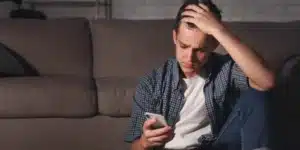Youth Programs – What are my Options?
Your teen is struggling. They are at-risk. There could be one problem spot or several. The entire family is suffering. Only parents with a teen at-risk truly understand the impact their child has on everyone in household.So you know the problem and you know the difficulty in trying to have it fixed. But what do you do? And where do you start?
There are several options the concerned parent can take. One general choice is to go to a residential facility. This would mean your teen moving away from home and living apart from you and the family for weeks or months and sometimes years at a time. The longer term courses are only for teens who have serious health problems and time is needed to work on their delicate condition. A long stay does not mean isolation. Regular contacts are allowed even required between the teen resident and their family. But your first major decision is will the treatment be residential?
If you choose not to go the residential route, then the treatment for your teen will be local and they will continue to live at home with their family. Of course you will need to find the best and most appropriate therapy but you will have your son or daughter with you at all times.
Is this a good move? Well that answer would require knowledge of your teen’s needs. One of the many benefits of a residential option is that your teen is removed from the bad influences they had when living at home. Getting the right therapy is obviously essential but if your teen simply returns to mixing with their old pals, any good may be undone. Think hard about the issue ofor school.
Here is a list of options.
- Your local doctor may not be a specialist but he or she will know of medical professionals who treat youth with problems. There are separate services which deal with drugs, alcohol, depression, pregnancy and other situations. Your local doctor can refer you to an appropriate and local resource which may be the ideal place for you to help your child.
- Your local health authority. Many local government agencies employ youth workers. They may not have the medical qualifications but they are trained in helping young people and if offering them healthy and worthwhile activities, this could be the key to (a) occupying your child’s time and (b) removing them from a drug culture which could be the cause of their woes.
- A camp or school which exists specifically to work with at-risk youth. There are several types of camps and schools and within each category there are dozens, even hundreds of individual facilities. Remember the benefits of moving away from the bad things in your teen’s life. The right residential option may be ideal for your child.
You have some decisions to make. What is wrong with my child? What are the options I have in helping my child? Which option is best for my child and why?
Here are additional resources you might be interested in:














